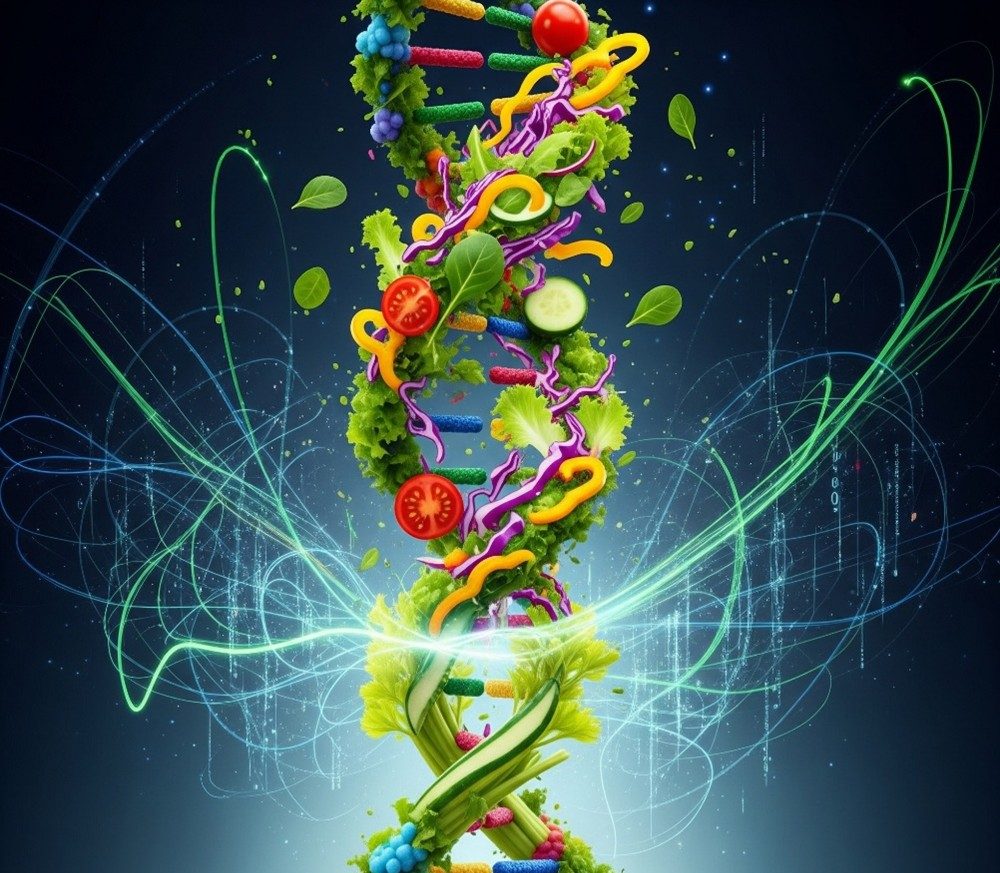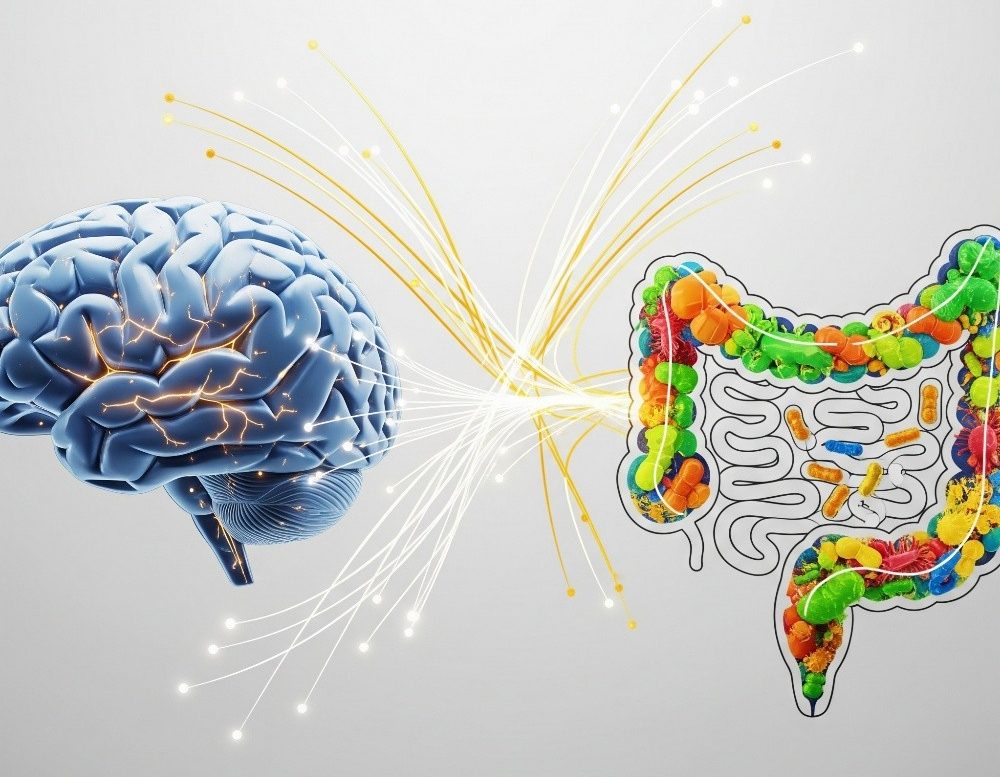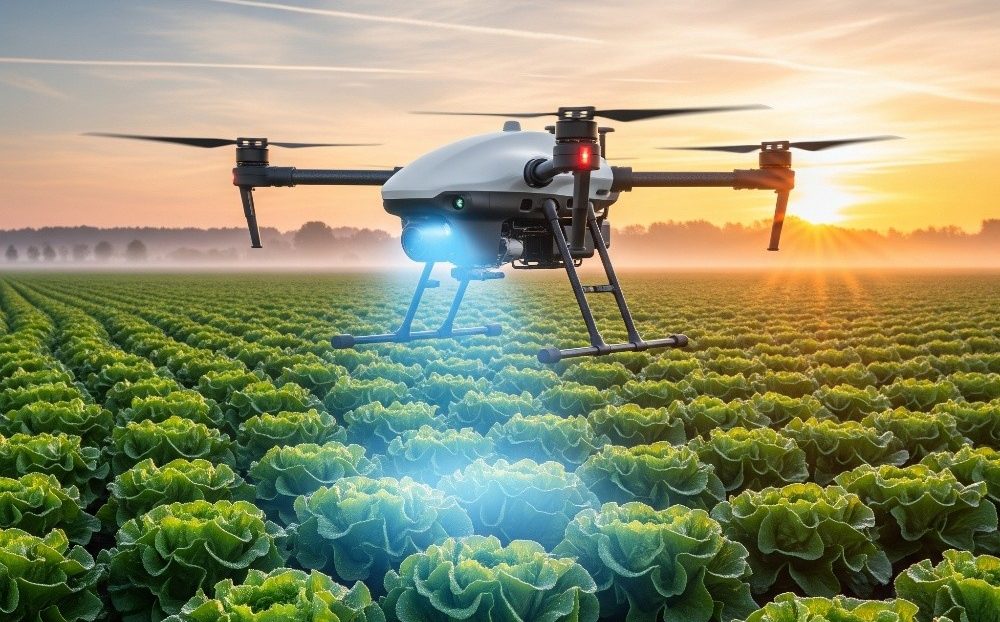Part II: AI’s Recipe for Personalized Nutrition and Sustainable Food

Artificial intelligence is moving well beyond the tech world and it’s beginning to impact our kitchens, farms, and research labs. Whether it’s developing personalized nutrition plans, improving food production, or driving new discoveries in dietary health, AI is changing how we think about food. In this issue, we’ll examine how these tools are shaping nutrition, advancing research, and streamlining the path from farm to table.
| Key Questions |
| How is AI enhancing the way we teach food and nutritional sciences? |
| What research breakthroughs in health and nutrition can AI help to unlock? |
| How are food producers using these tools on the journey from farm to fork? |
| How is AI helping consumers improve their personal health? |
Smarter Learning: AI in the Food and Nutritional Science Classroom
With AI, educators become more than just lecturers but facilitators, helping students ask better questions and evaluate AI-generated responses with a critical eye. Rather than relying only on textbooks, students can apply AI to real-world problems. For example, a dietetics student might use a simulation to test how a specific dietary change impacts a virtual patient’s metabolism, while another could model the environmental effects of food production methods. This type of active learning turns the classroom into a virtual laboratory and prepares students for careers where working alongside AI becomes a new standard.
Keypoint: AI transforms students from passive learners into active problem-solvers, ready for a tech-integrated future.
Accelerating Discovery: AI’s Role in Nutritional Research

Most of us are familiar with the food pyramid, RDAs, and the basics of balancing macronutrients. But addressing diet, like other lifestyle habits, is not a one-size-fits-all approach. With the help of AI, nutrition can now be tailored as uniquely as a fingerprint. By analyzing large data sets, including factors like the microbiome and genomic profiles, AI helps researchers to identify health patterns and design nutrition strategies that match individual needs. The result is a move toward hyper-personalized diets that may reduce disease risk and improve long-term health.
Keypoint: AI is compressing research timelines from years into weeks, paving the way for unprecedented breakthroughs in personalized health.
| Research Area | AI Application | Potential Outcome |
| Gut Microbiome | Analyzes microbial DNA datasets to find patterns. | Personalized probiotic and fiber plans. |
| Nutrigenomics | Identifies gene-diet interactions from genomic data. | Diets tailored to an individual’s genetic risk. |
| Predictive Health | Sifts through population data for diet-disease links. | Highly accurate disease risk prediction. |
From Farm to Fork: AI in the Agri-Food Industry

AI’s influence extends beyond personalized nutrition to the entire food system. In agriculture, drones and sensors enable precision practices that conserve water, increase yields, and limit environmental impact. In the food industry, machine learning is being used to develop healthier products, while AI-powered cameras detect contaminants with remarkable accuracy. Grocery stores are also using AI to better predict demand, reducing food waste and improving inventory management. Even delivery routes can be optimized to cut down on fuel use, making the supply chain more efficient and sustainable from farm to table.
Keypoint: AI is making the entire food supply chain smarter, safer, and more sustainable.
Your Personal AI Nutritionist
So, what does this all mean for you? One of the most exciting developments is the growth of personalized nutrition. Instead of following general diet trends, new tools are beginning to use your genetic profile, lifestyle, and even gut health to build individualized nutrition plans. Some companies are already creating apps that connect with wearable sensors, offering real-time feedback on how your food choices affect your body. The goal is simple: evidence-based, data-driven guidance that’s tailored to you.
Keypoint: From the classroom to your kitchen, AI is the secret ingredient that’s making our food system smarter, healthier, and more personalized.
Takeaway
Generative AI is already reshaping food and nutrition. These tools hold promise for creating a food system that is more personalized, efficient, and sustainable, improving both human health and environmental outcomes. The challenge now is to ensure AI is used responsibly, with attention to ethics, so that the benefits are shared broadly and the future of food is safer and better for everyone.
Sources
- Khandve, S., et al. (2025). Navigating next-gen nutrition care using artificial intelligence-assisted dietary assessment tools—a scoping review of potential applications. Frontiers in Nutrition. Frontiers in Nutrition Article
- Al-Ghamdi, S., et al. (2024). Deep learning in microbiome analysis: a comprehensive review of neural network models. Frontiers in Microbiology. Frontiers in Microbiology Article
- Howard, G. (2024, February 26). Interdisciplinary research team uses AI to create revolutionary food safety technology. University of Missouri College of Agriculture, Food and Natural Resources.
- Mahin A.N., et al. (2025). Precision Agriculture using Machine Learning and Deep Learning Algorithms: A Comprehensive Study. Precision Agriculture using Machine Learning and Deep Learning Algorithms: A Comprehensive Study | Research Square
- Zhou, J. (n.d.). Precision and Automated Agriculture Lab (PAAL). University of Missouri College of Agriculture, Food and Natural Resources. Precision and Automated Agriculture Lab
Useful Resources
- Explore AI in Agriculture: Discover how the USDA is implementing AI and data science to create a more efficient food system: About Intelligent Automation | USDA
- Understand Food Safety Tech: Learn from the FDA about the role of artificial intelligence in keeping our food supply safe: New Era of Smarter Food Safety Blueprint | FDA
- Read the Latest Research: Dive into cutting-edge studies on AI and food sustainability from the journal Nature Food: Artificial intelligence can regulate light and climate systems to reduce energy use in plant factories and support sustainable food production | Nature Food
FAQs
- Is AI-generated nutritional advice safe and reliable? AI-generated advice can be a powerful tool, but it should not replace the guidance of qualified healthcare professionals, who can interpret data and provide context an algorithm might miss. See guidance from the Academy of Nutrition and Dietetics.
- Will AI make food more expensive? While initial development is costly, the long-term goal is to make the food system more efficient. By reducing waste and optimizing resource use, AI has the potential to lower production costs.
- When will this technology be widely available? Many of these tools are already available through consumer apps and specialized health services. We can expect even more AI integration into our daily health routines in the coming years.
Future Inside CAFNR Articles for this Series
| Topic | Why this Topic? |
| Gen AI in Exercise Science | A look into AI’s role in creating customized fitness plans, analyzing biomechanics, and advancing sports performance research. |
| Gen AI in Natural Resources | Focuses on how AI helps manage ecosystems, model climate change impacts, and promote sustainable conservation efforts. |
Produced by:
Daniel Credeur, PhD
Associate Teaching Professor in Food, Nutrition, and Exercise Sciences
Provost’s AI Fellow for CAFNR